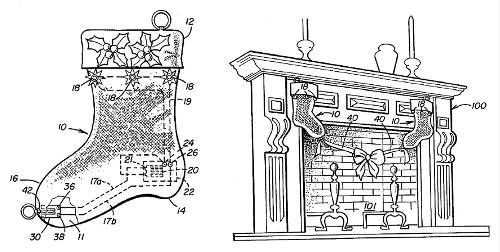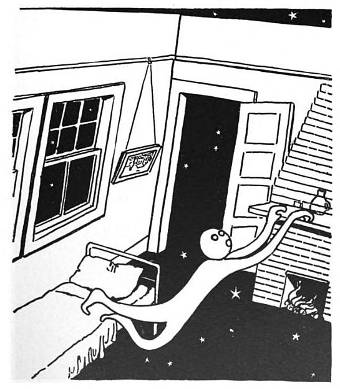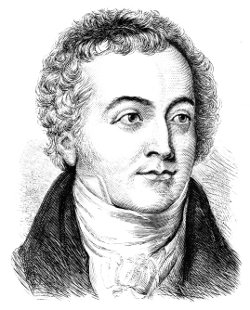Four fourths exceeds three fourths by what fractional part?
“This question will usually divide a company.”
— William Frank White, A Scrap-Book of Elementary Mathematics, 1908
Four fourths exceeds three fourths by what fractional part?
“This question will usually divide a company.”
— William Frank White, A Scrap-Book of Elementary Mathematics, 1908
The captain of a freighter was notoriously strict. On one occasion the new first mate, whom he had just hired, became a bit too boisterous after hours, and the captain wrote in the ship’s log, “The first mate was drunk last night.”
The mate was an able, conscientious seaman, and he pleaded with the captain to strike this from the record. He had never been drunk before, he did his job faithfully, and he was off duty when the offense had happened. He begged for leniency, pointing out that such a record would cloud his whole future.
“I can’t help it,” the captain said. “You were drunk last night, and I can’t change the fact. The record must stand.”
Wounded, the mate returned to his duties, and he stood the watch that night without complaint. In the morning he wrote in the log, “The captain was sober last night.”

Thomas Cane’s “Santa Claus detector,” patented in 1996, combines yuletide spirit with cold-hearted espionage. Kids booby-trap the hearth as shown on Christmas Eve, and if the decorative ribbon is pulled during the night, the stockings light up, giving proof of the fat man’s visit. “This is particularly important to young children, providing reassurance that the child’s good behavior has in fact been rewarded by Santa Claus.”
The patent abstract says that the same technology can be used to monitor the Easter Bunny and the Tooth Fairy. Presumably they’re working on countermeasures.
“Ignorance is bold, and knowledge is reserved.” — Thucydides
In October 1921, Rep. Thomas L. Blanton (D-Texas) was nearly expelled from the House of Representatives for inserting “grossly indecent and obscene language” into the Congressional Record.
Blanton opposed unions; he was quoting an argument between a union and a non-union printer. The offensive passage was called “foul,” “disgusting” and “derogatory to the dignity” of the House; the New York Times reported that it “contained matter so indecent as to cause criminal prosecution if it had gone through the mails in an ordinary way.” Brace yourself — here it is:
G__d D___n your black heart, you ought to have it torn out of you, you u____ s_____ of a b_____. You and the Public Printer has no sense. You k_____ his a____ and he is a d_____d fool for letting you do it.
The expurgations are in the original.
Blanton kept his seat but was censured unanimously by his colleagues. “In the corridor he fell exhausted, striking his head on the marble floor. He rested a few minutes on a couch, refused medical aid, and shuffled to his office, tears running down his face as he forced his way between spectators and members who were leaving the session.”

I wish that my room had a floor!
I don’t so much care for a door,
But this crawling around
Without touching the ground
Is getting to be quite a bore!
— Gelett Burgess, The Burgess Nonsense Book, 1901
Here’s to the man who invented stairs
And taught our feet to soar!
He was the first who ever burst
Into a second floor.
The world would be downstairs to-day
Had he not found the key;
So let his name go down to fame,
Whatever it may be.
— Oliver Herford, Happy Days, 1917
If you remember how much easier it is to remember what you would rather forget than remember, than remember what you would rather remember than forget, then you can’t forget how much easier it is to forget what you would rather remember than forget, than forget what you would rather forget than remember.
— Elmira Gazette, quoted in New York Times, Feb. 13, 1891
horrisonous
adj. uttering a terrible sound

As Thomas Young was struggling to decipher the Rosetta Stone, a traveler gave him a parcel of Egyptian manuscripts. Among the baffling hieroglyphics he noted three names written in Greek: Apollonius, Antigonus, and Antimachus. As he was puzzling over the rest, a friend gave him some papyri he had purchased at Thebes in 1820. Two of these contained some Greek characters, and Young began to examine them impatiently.
He “could scarcely believe that I was awake, and in my sober senses” when he saw the words Antimachus Antigenis and, a few lines further back, Portis Apollonii. It was a Greek translation of the very Egyptian manuscript he had been wrestling with!
“I could not, therefore, but conclude, that a most extraordinary chance had brought into my possession a document which was not very likely, in the first place, ever to have existed, still less to have been preserved uninjured, for my information, through a period of near two thousand years: but that this very extraordinary translation should have been brought safely to Europe, to England, and to me, at the very moment when it was most of all desirable to me to possess it, as the illustration of an original which I was then studying, but without any other reasonable hope of being able fully to comprehend it.”
“This combination would, in other times, have been considered as affording ample evidence of my having become an Egyptian sorcerer.”
But the superstitious noted that the death of Prince Albert Victor on a Thursday broke a remarkable spell or curse which had hung over the present royal family of England for more than a century and three-quarters — bringing about the death of all the prominent members of that family on Saturdays. William III died Saturday, March 18, 1702; Queen Anne died Saturday, August 1, 1714; George I died Saturday, June 10, 1727; George II died Saturday, October 25, 1760; George III died Saturday, January 29, 1820; George IV died Saturday, June 26, 1830; the Duchess of Kent died Saturday, March 16, 1861; the Prince Consort, husband of Queen Victoria and grandfather of the recent deceased Prince Albert Victor, died Saturday, December 14, 1861; Princess Alice of Hesse-Darmstadt, Victoria’s second daughter, and sister of Albert, died Saturday, December 14, 1878. The shadows which overhung the late prince’s life are said to have been darkened by a superstitious fear which caused him to keep close in-doors on Saturdays.
— William Shepard Walsh, Handy-Book of Literary Curiosities, 1892